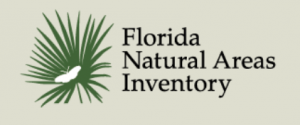Welcome to CPC: New Institutional Conservation Partners
To close out the year, the Center for Plant Conservation (CPC) is pleased to welcome two new plant conservation organizations to our network of Institutional Conservation Partners: Florida Natural Areas Inventory and The Huntington. Now 73 members strong, the CPC network brings together plant conservationists from across North America and is strengthened by the knowledge and experience that each institution brings. Together, our network makes it possible to Save Plants.
Florida Natural Areas Inventory
Network Partner | Tallahassee, FL

Founded in 1981 as a member of The Nature Conservancy’s international network of natural heritage programs, now coordinated by NatureServe, the Florida Natural Areas Inventory (FNAI) has a mission to collect, interpret, and disseminate ecological information critical to the conservation of Florida’s biological diversity. Working throughout the Sunshine State, FNAI’s database and expertise facilitate environmentally sound planning and natural resource management to protect the plants, animals, and communities that represent Florida’s natural heritage.
FNAI staff continually build and maintain a comprehensive database of the biological resources of Florida, which now includes more than 32,000 element occurrences of rare plants, rare animals, and high-quality natural communities. These occurrences are maintained in a GIS (Geographic Information Systems) database for mapping and analysis. FNAI also serves as the primary source for information on Florida’s conservation lands. The FNAI database includes GIS boundaries and statistics for more than 2,000 federal, state, local, and private managed areas. The database also includes information on Florida Forever environmental land acquisition projects.
As a founding partner of the CPC-led Florida Plant Rescue (FLPR) statewide seed-collecting initiative, FNAI invaluably supports CPC’s mission by carrying on FLPR coordination and data maintenance for the project. They aspire to provide meaningful rare plant data to CPC and partners to help inform plant conservation actions in the state, and–as opportunities arise and resources allow–FNAI also hopes to be able to collect plant materials for other partners to process and safeguard.
The Huntington
Participating Institution | San Marino, CA

Based in San Marino, CA, The Huntington Library, Art Museum, and Botanical Gardens is dedicated to sharing its world-renowned collections to support scholarship, foster learning, inspire creativity, and offer transformative experiences for diverse audiences. The Huntington has been growing rare and endangered plants for over a century. Its plant conservation program, formally begun in 2007, has steadily grown over the last 15 years and now oversees the herbarium, seed bank, tissue culture lab and cryobiotechnology program.
The Huntington’s living collections are one of the largest and most diverse plant collections in the world, with over 57,600 accessions, represented by over 84,700 living plants. The Botanical Gardens grow 27,600 taxa (including hybrids, cultivars, and naturally occurring taxa) and currently have 23 core collections recognized in their living collection. Among these are large charismatic groups that are imperiled in the wild, such as cacti, orchids, and cycads. The Huntington has an institutional commitment to be leaders for a sustainable world.
With the understanding that the Botanical Gardens hold stocks of threatened species during a period of habitat degradation and global biodiversity contraction, The ARK Conservation Program at The Huntington helps identify and prioritize at-risk taxa in their living collection for targeted propagation and research, as well as outreach. A key component of this program is to form partnerships using a scaled approach, offering unique resources that could contribute to plant conservation at the national level. By joining the CPC network, The Huntington aims to be part of an integrated network of professionals in order to facilitate the exchange of resources to support native plant conservation and create greater impact.